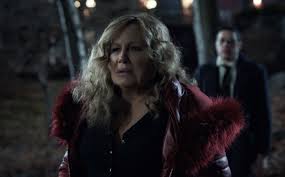The Color Purple 2024 Movie Review
Greetings again from the darkness. It all began with Alice Walker’s 1982 novel, for which she was awarded a Pulitzer Prize. Shortly thereafter, Steven Spielberg turned it into the movie event of 1985, with a memorable cast including Whoopi Goldberg, Danny Glover, and yes, Oprah Winfrey. The film received eleven Oscar nominations, yet was shut out in all categories. Jumping ahead 20 years (2005), Marsha Norman created a musical stage book that turned into a smash hit on Broadway, receiving eleven Tony nominations. It was 2015 when the musical revival hit the stage, re-establishing the story as part of the fabric of the entertainment world. Along the way, Ms. Walker’s book had been frequently banned and censored, and the adaptations were sure to pick and choose what to cover and how to do so. Here we are forty-one years after the book’s publication, and director Blitz Bazawule (Beyonce’s BLACK IS KING, 2020) delivers a moving and bold film version (screenplay by Marcus Gardley) based on the musicals, the novel, and the original film.
The film opens on the Georgia coast in 1909 by establishing the bond between young Celie (newcomer Phylicia Pearl Mpasi) and her sister Nettie (Halle Bailey, THE LITTLE MERMAID). When the two are forcefully separated, Celie loses the hope Nettie always provided, and soon she’s living a miserable existence as one abused by Mister (a powerful Colman Domingo, RUSTIN) who treats her poorly by regularly taking out his frustrations. Assuming the role she made her own on Broadway is Fantasia Barrino as adult Celie, whose presence and spirit contain the heart of the story.
Memorable characters and performances are everywhere we turn in this production. Danielle Brooks (“Orange is the New Black”) is a powerhouse as Sophia, a role she also owned on stage. Sophia is wife to Harpo (Corey Hawkins, STRAIGHT OUTTA COMPTON), one of the few men trying to break the tradition of abuse … not that he has much choice. Taraji B Henson is a jolt of energy as singer Shug Avery, one of the few women from this neck of the woods who gained independence and made a life (mostly) on her terms.
The supporting cast is filled with talent and surprises. David Allen Grier appears as Reverend Avery, Shug’s estranged dad. Aunjanue Ellis-Taylor (ORIGIN) appears in flashbacks as Celie’s Mama. Elizabeth Marvel (“Homeland”) is the unforgiving and racist wife of the Mayor, and one who has such an impact on Sophia’s life. Oscar winner Lou Gossett Jr (now 87 years old) shows us exactly how his son Mister turned out the way he did. As this is a musical, we would expect musicians to play a part, though it’s quite a treat to see H. E. R. As Squeak (Harpo’s girlfriend), Jon Batiste as Grady (Shug’s fashionable husband), and Ciara in a critical appearance as grown-up Nettie. There is also a well-placed cameo early on that harkens back to Spielberg’s movie.
Covering at least the decades of 1907 through 1945, we see how each character changes depending on their circumstances … especially Celie and Sophia, as well as an attempt at redemption by Mister. At least three ‘showstopper’ songs are included here. Taraji B Henson offers a rousing “Push da Button”, and Danielle Brooks is adamant about where she stands with “Hell No.” Fantasia Barrino’s “I’m Here” may be the highlight since it encapsulates her resilience and perseverance. The quality of the film is evident in all aspects: cinematography (Dan Laustsen), score (Kris Bowers), Production and Set Design (Oscar winner Paul D Austerberry, Larry Dias), and Costumes – especially Shug Avery’s – (Francine Jamison Tanchuk, Rashad Corey). Serving as Producers are Steven Spielberg, Oprah Winfrey, Quincy Jones, Alice Walker, and Scott Sanders, to name a few with long time ties to the story. It’s clearly a labor of love and passion for those involved, and ends with a tear-jerker reunion over Easter dinner. Not many follow the production trek of novel to film to musical to musical revival to musical film, and even fewer have ever done it this well.




